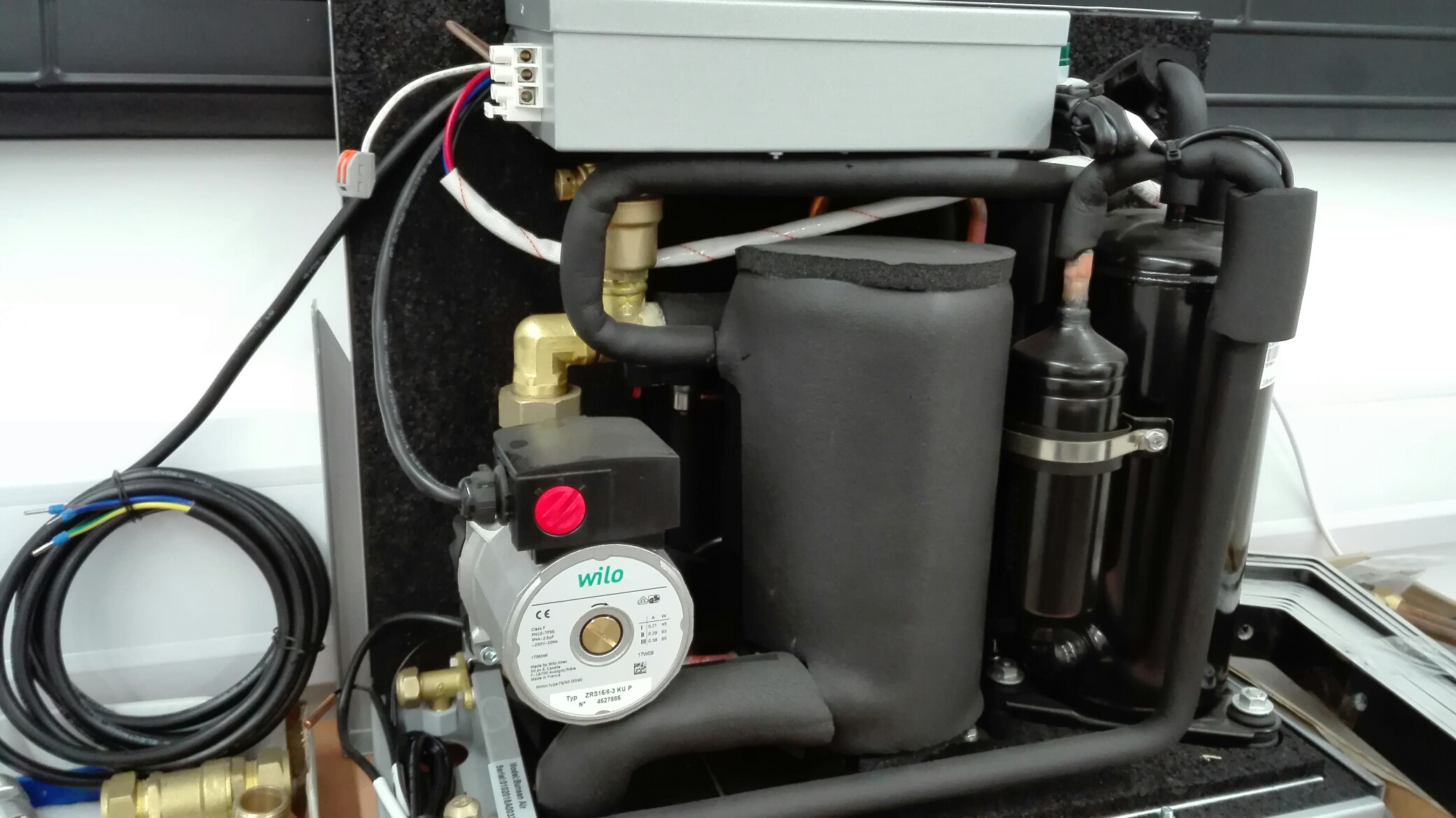
18 Jun Rotary Power – Superior Performance!
Did you know, that a huge driving force behind the power of a Thermodynamic Hot Water System, is the efficiency of its compressor?
The compressor is responsible for drawing in vapour from the thermodynamic, hot water panels, before compressing it and distributing it at a higher pressure to the condenser.
You might be surprised to hear, that there are better options than the piston compressors found in the anatomy of most solar assisted heat pumps.
Here’s why…
Issues surrounding Piston Compressors
. They store air at a higher pressure than required at the point of use, meaning that recovery times can be affected as pressure must constantly be reduced to the required operating pressure.
. Their internal temperature is high, varying from 150 -200C, therefore, such high temperatures mean that moisture can be released and as they are unable to dry as quickly as a rotary compressor, this too can affect efficiency.
. Their duty cycle which is the amount of time they can operate without over heating is only 60-70%, meaning that 30% of the time they are unable to work.
Why Infinity Innovations Ltd chose to incorporate rotary powered technology into the design of the Bunsen Air
During the Bunsen Air solar heat pump research and design process, the system was trialled with the incorporation of a standard piston compressor component.
Operational tests uncovered that the system was unable to reach the levels of power and efficiency required to make it the superior solar thermodynamic heat pump Solamics had intended, therefore, it was decided that rotary compressor technology could be the key to higher power and efficiency.
Rotary compressors are often used where greater volumes of high-pressure air are needed, and can be found within large industrial systems or are integrated into the design of high-power air tools – meaning that incorporated into a domestic solar hot water system, could be extremely powerful.
They feature a number of benefits…
Benefits of rotary compressors
. The rotary compressor is cooled with specialist fluids meaning that unlike the piston compressor, it has a 100% allowable duty cycle, allowing for continuous operation.
. With a much lower internal temperature of between 80-100C, the rotary compressor can cool itself down easily, the capability of the rotary compressor to lower its own temperature means that any internal moisture is eradicated.
. ‘Carry over’ oil which is used to lubricate the rotary compressor is far less than that of a piston, using several less times oil for operation
. According to a source, the rotary compressor is also capable of delivering more air per unit at 4-5 cfm per hp as opposed to a piston compressor which delivers 3-4 cfm per hp, making the rotary compressor more efficient.
Quietly powerful
Another consideration for the inclusion of a rotary compressor in this particular thermodynamic water system, was its operational noise levels.
Solamics considered how they could soundproof the Bunsen hot water system to ensure that despite the higher operational efficiency of the rotary air compressor, the system would not be to noisy for a domestic installation.
Therefore, much like a well-insulated and sound proofed home, Solamics incorporated layers of sound proofing material into the design of the Bunsen unit, to ensure that this wouldn’t be a problem.
ERP testing later revealed, that the Bunsen Air had operational sound levels of under 41 decibels – making it the quietest system of its kind on the UK market.
Take a look at the Bunsen Air Facebook page for details on the other components that make the Bunsen Air, in our opinion – the most powerful thermodynamic hot water system available!


